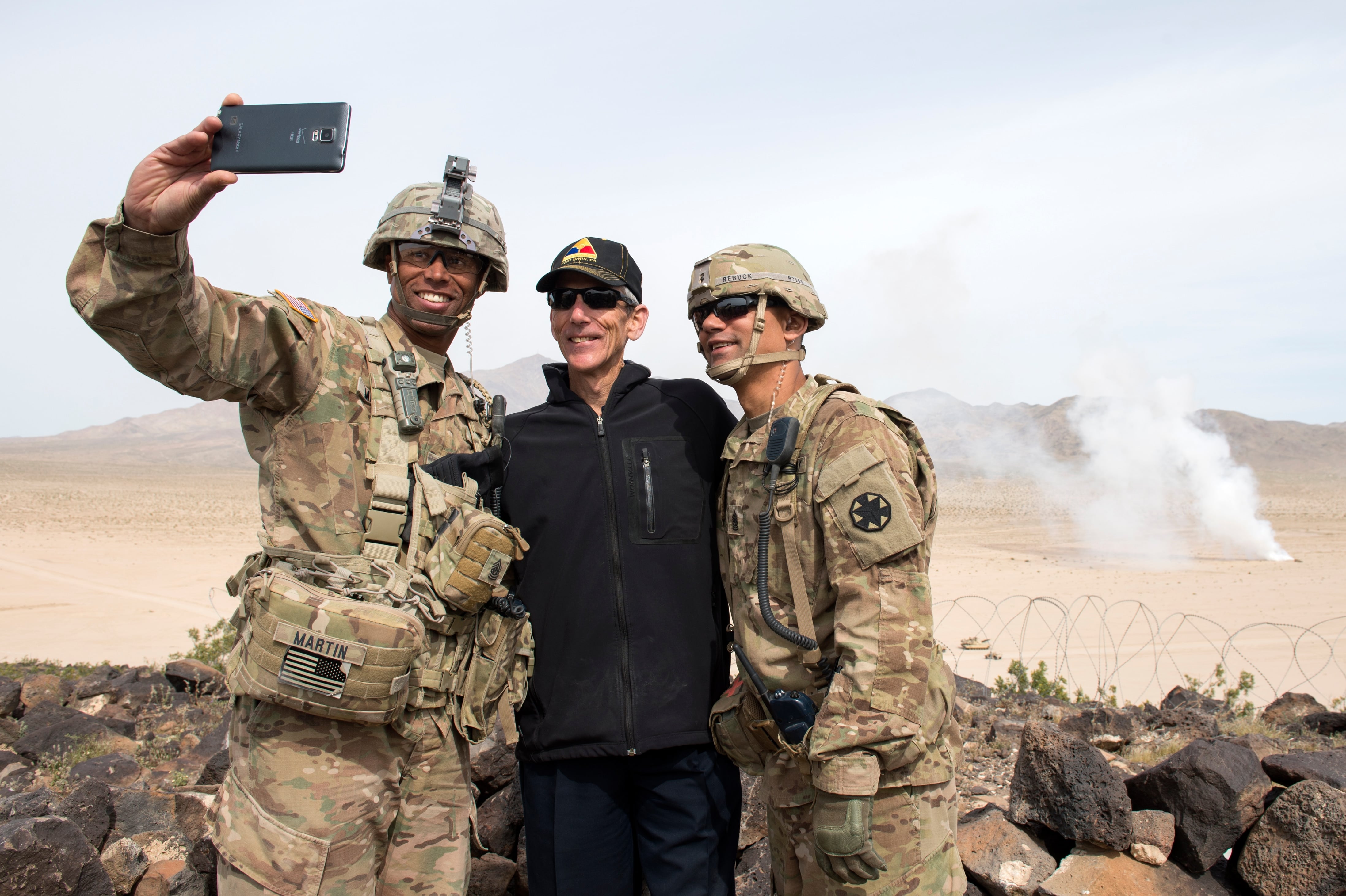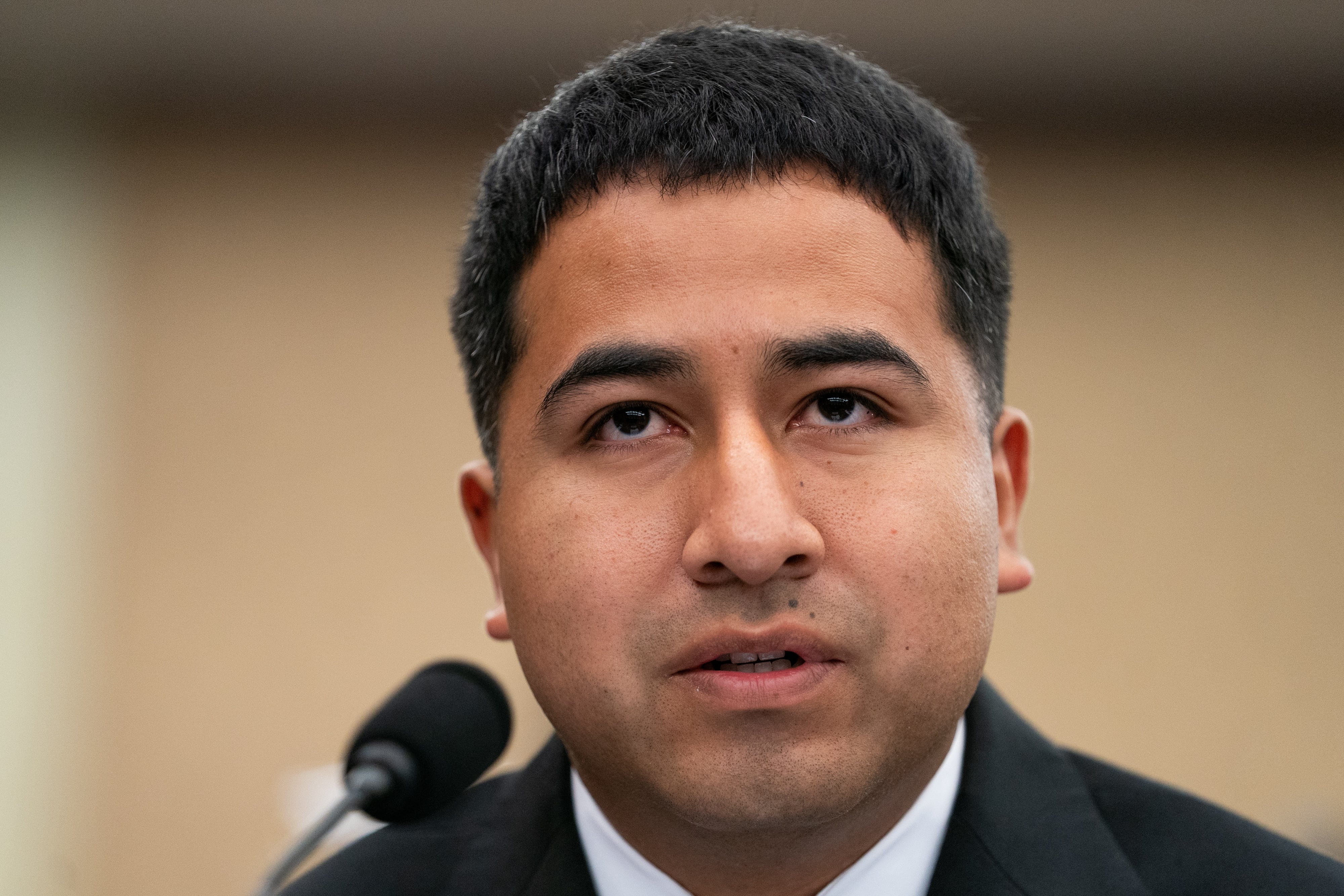The Army turns 242 years old on Wednesday, but this year, the service's acting secretary is looking back to World War I for guidance.
The first World War brought forth much of the way the Army fights and functions today, and a century later, leaders are preparing for another sea change, acting Secretary Robert Speer told Army Times.
"I also think we're on the cusp now — you hear [Chief of Staff] Gen. [Mark] Milley talk about it, the new character of war — so we're at another point," Speer said. "A hundred years later, to a point where you can see things significantly changing for the future."
Today the Army faces yet another inflection point, but rather than making the shift from a small domestic defense force to a global player, the current Army is trying to find the balance between deterrence missions in Europe and Asia while preparing for combat operations in the Middle East.
"It is important to look at those types of things that go on," Speer said. "You've got to be ready. So, to be ready, part of what's going on with the national defense strategy review that the secretary of defense is working on, what's the Army's role to that?"
For now, the Army is doing its part by asking for more soldiers and funding to meet its current work load, while counting on an even bigger force in the future.
"There's a lot of people on the Hill that want to push you," Speer said, referring to his recent experiences testifying in front of congressional committees. "Higher numbers — higher numbers to what? We need to be able to balance that between numbers for capacity, what we need to be able to execute our current mission."
On June 7, Milley testified that the Army was looking for up to 550,000 soldiers in the active force — 74,000 more than this year’s goal of 476,000.
"What do we need to do five, 10 years from now?" Speer said. "Because if you don’t start doing it now, you can’t wait five to 10 years and then say let’s change it. It won’t happen. And then that will be where you’re in a situation where you’re not ready for the thing that comes next."
But it’s hard to make that sell to Congress, he said.
"The fiscal instability, the fiscal uncertainty. And at the same time, we just got the [fiscal year] 17 budget. This is the latest I can remember that we’ve gotten an actual budget after a continuing resolution," he said. "We’re defending in June the FY18 budget … and we’re working on the next budget already. I just came out of a meeting working on the ‘19 budget."
Force of the future
The Obama-era Defense Department’s Force of the Future initiative, which took aim at long-held military policy and legal requirements for systems like promotion, family leave and others, has been tabled for now, but Speer pointed to it as an inspiration for the Army’s way ahead.
"There are elements of that that you still need to look at," he said.

Acting Army Secretary Bob Speer takes a photo with soldiers during a visit to the National Training Center, Fort Irwin, Calif.
Photo Credit: John Martinez/Army
The Army is considering, for example, whether it can bring in civilian cyber warriors at a higher rank, while offering them enough pay and benefits to compete with the private sector. There has also been discussion about allowing them to veer off the traditional promotion path because they are so highly skilled at their position.
The service is also finding its place in the world’s current conflicts. Following combat withdrawals from Iraq and Afghanistan, the Army has mostly focused on train, advise and assist missions in the Middle East, while focusing on assurance and deterrence in Asia and Europe.
Now, special operations and conventional forces are ramping up combat operations against ISIS, and the Pentagon is putting together a strategy to decisively take down the terror group.
"You go back to the height of Afghanistan, Iraq, we had broken apart a lot of the units, both in terms of the training [for counterinsurgency operations] and the way we started organizing them to operate," Speer said. "That’s not what we’re doing now."
Now, brigades are preparing again for decisive action, he said.
"You may have a unit go into a rotation into Europe right now where they’re on the move across a tremendous depth of a theater working with allies — Polish, Ukrainian, German — and they’re going to Hohenfels, Grafenwoehr," he said. "And then they’re coming back and they’re getting ready to support a [combat training center] rotation, and then they’re gearing up to go to Korea."
Service without a secretary
Speer spent the better part of a decade crunching numbers in Army headquarters, but his tenure as acting secretary has expanded his horizons to visiting soldiers around the world and testifying on Capitol Hill with the chief of staff.
"Absolutely, for me, heartwarming," he said of visiting troops. "You see them, you talk to them — that’s what makes this job worthwhile."
It’s not a job he expected to be doing for this long. He was promoted to replace outgoing Secretary Eric Fanning, to serve as a placeholder until the Trump administration confirmed a replacement.
But that replacement has yet to arrive more than five months into the administration, after two secretary candidates dropped out of the running.
For him, it has to be business as usual.
"We have a mission to perform, we have things to do," Speer said. "I certainly know that you have a boss that you have to listen to what their priorities are. A lot of priorities haven’t changed. It’s a risky environment right now."
On June 6, the White House announced a nominee for Army under secretary — Ryan McCarthy, a former Ranger and current executive at Lockheed Martin — who, if confirmed, would move into the acting secretary role.
But until he gets word that a new boss is coming in, Speer said, he’s keeping things steady. And he’s savoring the job as long as he has it.
"You feel very fulfilled with the job you’re doing and what you’re accomplishing with the folks that you have here," he said. "I’d rather just focus on that right now."
Meghann Myers is the Pentagon bureau chief at Military Times. She covers operations, policy, personnel, leadership and other issues affecting service members.





